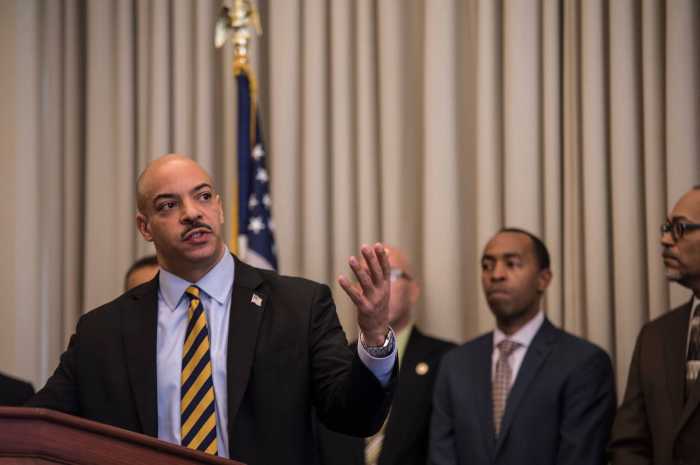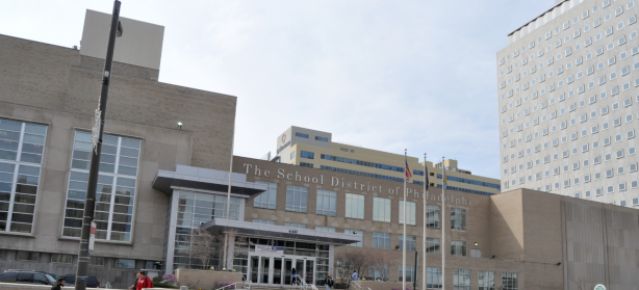I had a crazy dream on Wednesday night.
I was wearing a Sixers jersey running across a bridge with a crew of my West Philly neighbors dumping tons of soda down the Schuylkill River. It was like the Boston Tea Party, except we were black. And then I woke up, cursed out loud at how I wish such a response would work in 2016 and went back to bed. Philadelphia will likely become the first major U.S. city to pay a tax — 1.5 cents-per-ounce — for drinking a sugary beverage. For every average 12-ounce can of either regular or diet soda, Philadelphians can expect to pay an additional 18 cents. Sigh. Related: Victory for Kenney: 1.5 cent soda tax passes Council On Wednesday, the majority of City Council gave Mayor Kenney their blessing on a soda tax — but under the condition that it be reduced to half of his initial 3 cents-per-ounce proposal.
However, Kenney didn’t get this approval by making a compassionate case for helping fund universal pre-K and other community endeavors — he struggled with that. Instead, like Chicken Little, out of the sky came the announcement that some of the soda tax residuals would go to the city’s fund balance in early years. Fun fact: Kenney’s administration never previously said anything about the tax going toward the city’s struggling fund.
Translation: Once this soda tax drops, pre-K and other recreational plans just might have to wait a few years before they get the full benefit initially touted.
You just don’t drop a bomb like that in the eleventh hour unless you feel as though you’re going to sink. With all of the proposals brought up surrounding property taxes, container taxes and other plans to ax the soda tax altogether, Kenney knew it was very easy for his proposal to fall short of the votes. It became very clear that his administration pulled a fast one and City Council compromised out of fear of appearing extremely ruthless to his initial budget. “I hope in the future we get full disclosure,” said Councilman Bill Greenlee to Kenney’s finance director Rob Dubow during the Wednesday budget hearings. “We should have brought it up earlier,” Dubow pathetically replied back. Anyone with an ounce of common sense knows that such a major detail doesn’t accidentally get left out of the conversation. This was a trap, a political set-up to force City Council to relinquish power. With the city’s crazy pension costs, rising labor costs and developmental contracts looming, Council wasn’t going to defy a budget that was skewed to largely address that. So the soda tax, initially pitched as a progressive education policy move, now looks more like a funding buffer for America’s poorest major city. In other words, progressives got bamboozled. At this point, we shouldn’t seriously trust how this money will be spent in the long term. There is legitimate speculation that some of the new money from this ambiguous fund would be used for the upcoming District Council 33 contract negotiations that Kenney is in desperate need of revenue for. The deception is real and my soda is getting taxed. I might as well stock up now before the apocalypse.
The Ernest Opinion: Desperation, lies and soda … Philly got bamboozled

Getty Images



























